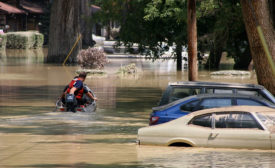Home » Keywords: » business reslience
Items Tagged with 'business reslience'
ARTICLES
Business leaders' top 10 risk concerns over the next decade
Global survey of business leaders reveals pandemic-associated risks are currently top-of-mind, while technology disruptions and the future of work are concerns for the next decade
February 3, 2021
Get our new eMagazine delivered to your inbox every month.
Stay in the know on the latest enterprise risk and security industry trends.
SUBSCRIBE TODAY!Copyright ©2024. All Rights Reserved BNP Media.
Design, CMS, Hosting & Web Development :: ePublishing





